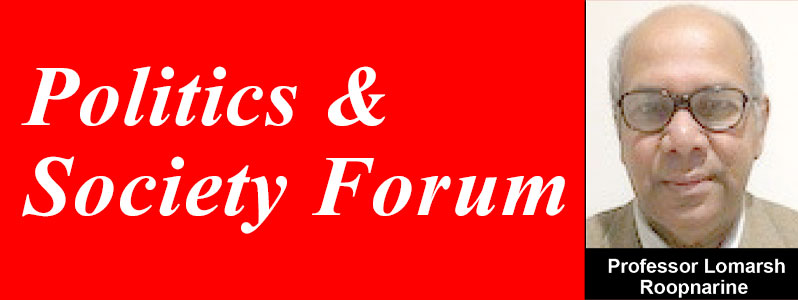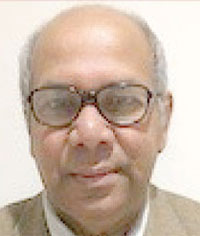A CURSORY assessment of the coverage on the attempt to rig the March 2, 2020, general election to favour the ruling Coalition Government on the dailies and media, two years later, reveals two opposing observations. One is that the actual attempt of rigging did take place, and the other is the silence and denial of the riggers. The first observation has gained enormous traction, and I suspect will continue, which means then that the second observation is fading as the narrative of anything, but rigging is not holding water. How long the latter observation will go on is not certain, but the Coalition will have to face this reality in the next general election. Are they prepared to defend and sustain their views that electoral rigging did not happen? They will with little success. The PNC has never acknowledged the rigging of at least one of four previous elections, and so, any indication of doing so soon is nil.
The lack of recognition of the attempted rigging of the March 2, 2020, general election by one political party that once governed Guyana for three decades is an undisputed national problem. The first is that the PPP erred in thinking that the rigging of elections was something of the past. The PPP has since woken up from this misjudgment with a fixity of purpose, knowing that the possibility of electoral rigging is real, and therefore, will be placed on high alert. There is not a soul in the PPP leadership who believes that attempts of electoral rigging will not happen again in 2025, 2030, and 2035 even with the implementation of reforms in GECOM to ensure free and fair general elections. The harbouring of fragile trust and willingness to move on from the PNC’s history of electoral rigging have been violated, if not raped. It will take decades to restore the trust that was built in the two decades of the twenty-first century. My take is that the word rigging will not “disappear” from Guyana’s electoral process by 2050 unless the PNC addresses this inflicted pain on Guyanese.
Concomitant with how the PPP feels about attempts to rig the general election is a national running sore of ordinary Guyanese who believe that whenever they go to the polls every five years, they must deal with the prospects of electoral rigging by the PNC/R. This is an unnecessary burden and bogey on Guyanese since they have not created this problem. They simply want their voting rights to be recognised and counted in their country of birth, and not be violated like their previous generations. We need published conversations that took place in the five-month-long impasse between the generations that voted in 1973, 1980, 1985, and after the March 2, 2020, elections. This is one beneficial approach to understanding and healing why Guyana’s electoral experience has been ground stop. I will not undervalue, underestimate, and invalidate the level of trauma Guyanese have experienced in that five-month election impasse. Here again, a study is needed. One individual told me that several people started to lose their appetite, a common symptom induced by depression, while others said that they had given up farming but with the possibility of sanctions on Guyana looming, they went back to farming in preparation for pure survival.
What is fortunate, however, when comparing those who voted during past rigged elections and those who voted in 2020 is that the latter had access to social media. If they had doubts about rigging before they were born, the vivid images of attempted rigging over social media in 2020 erased those doubts instantly. Additionally, the 2020 voters have continued access to other general elections like Guyana and have noticed a difference regarding peaceful elections. They must have asked themselves why such a rigging disgrace happened only in their homeland when considering that most developing countries, like Guyana, formed in the 1960s during the decolonisation process, have experienced fair electoral practices and patterns. Neighbouring Suriname and the English-speaking Caribbean come readily to mind. The word rigging does not exist in these countries. There are a few electoral hiccups, but they are remedied expeditiously without people going to the street to vent violence. The citizens of the wider Caribbean could not believe, as expressed in their own media, what happened in Guyana two years ago by some factions to rig the general election. The defenders of rigging went on their countries’ televisions, such as in Trinidad, spewing bizarre reasons that rigging never happened in Guyana and foreign nationals did not understand Guyana’s electoral system. This is shameful.
The above points to one direction with three strands. The weight of future fair and free general elections will depend largely on a functional GECOM, national and international observers, and if these forces do not answer in the affirmative, rightly, or wrongly so, the pronouncement of developed countries, mainly from the U.S., would be needed. Guyana’s democracy has reached this stage because one political party does not believe to play by the letter and spirit of the law. Their fidelity to rigging is rooted deeply, and that there is a denial of rigging is really the validation of this aberration.
(lomarsh.roopnarine@jsums.edu).



.jpg)










